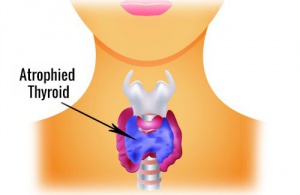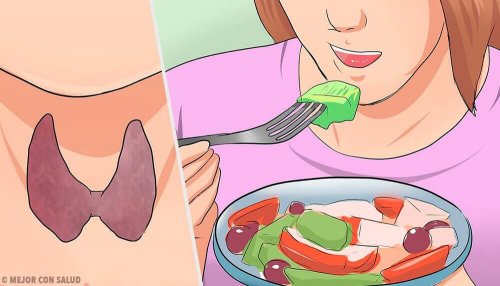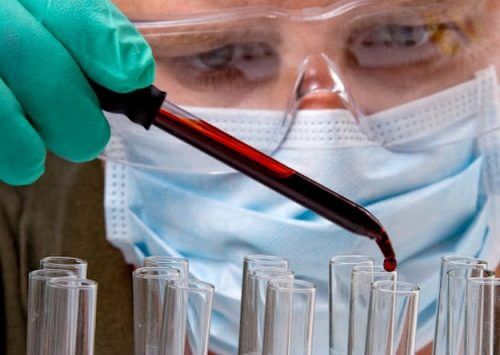Take Care of Your Thyroid and Avoid Hypothyroidism


Written and verified by psychologist Valeria Sabater
Hypothyroidism is a condition in which the thyroid gland stops producing the normal amount of the thyroid hormone. Luckily there are many ways to avoid hypothyroidism.
It is important to note that it is more common among women and that the symptoms are many and varied. However, they commonly include weight gain, usually where diets are ineffective and nutritional problems continue to worsen the condition.
A lot of complications can appear when our body has a slow metabolism. It is very important that we pay attention to all the symptoms so that our physician can treat us effectively and even help avoid hypothyroidism.
From this standpoint, we offer some basic guidelines so that you can achieve a better quality of life. Although learning the correct diet for this is key, always remember that your doctor has the last word.

Possible Causes of Hypothyroidism
- Thyroiditis: when our thyroid glands are inflamed and they stop producing the necessary level of the hormone. It is more common in women and in people over 50 years old.
- Immune system problems.
- Medications containing lithium.
- Radioactive iodine that is sometimes used for certain treatments.
- Certain genetic anomalies present from birth.
You may also like:
7 Natural Ways to Boost Your Immune System and Prevent Colds and the Flu
What Symptoms Are Related to Hypothyroidism?
- Weight gain, when our metabolism functions more slowly and we begin to retain water, salt, fat…but should not be confused with the symptoms of menopause.
- We begin to feel tired, slow.
- Heavy menstruation.
- Muscle and joint pain.
- Skin pallor and dryness.
- Periods of depression.
- Weak nails and hair.
- Constipation.
- Higher sensitivity to cold.
Other symptoms may appear if we have not gone to a doctor and if we have not obtained a suitable treatment, traits visible when we have suffered hypothyroidism for a longer period of time:
- Loss of desire and sense of smell.
- Swelling of hands and feet.
- Thickening of the skin.
- Loss of eyebrow hairs.
We recommend you also read:
What Tests Can We Do To Diagnose Hypothyroidism?
- Your physician can do a blood analysis to observe our level of TSH (thyroid hormone).
- Cholesterol level, a blood panel, sodium and prolactin levels, liver enzymes can also show the presence of hypothyroidism.

Proper Diet to treat and avoid Hypothyroidism
Our diet and medical treatment are essential for our thyroids to return to normal, and they also produce healthy levels of the hormone. Then, it is necessary that you include in your diet the following nutrients:
Iodine
Iodine increases the production of T4, helping improve the thyroid, which we can find in fish, seafood, seasalt, iodized salt, and in seaweed.
But we advise you not to consume too much seaweed, especially Fucus vesiculosus or kelp, often sold with elevated levels of iodine which can worsen our condition and create antibodies. Eat a proper amount, and if you have concerns, consult an endocrinologist, who will give you a suitable dose.
Pistachios, walnuts, coconut, hazelnuts, lentils, tomatoes, apples, mangos, and pineapples are also rich in iodine and are very tasty.
Foods Containing Vitamin A
- Will help your thyroid, as well as your skin and hair.
- Endives, clams, eggs, sweet potatoes, spinach, caviar, watercress, carrots, persimmons, loquats.
Foods Containing Vitamin B
- Indespensable for our immune system, the heart, the nervous system.
- Sardines, anchovies, cow liver, chicken or lamb, oysters, mackerel, mussels, salmon, tuna, and cod.
Fruit That Increase Thyroid Production
- Pomegranates, grapes, oranges, lemons, and figs.
Plants That Help Treat and avoid Hypothyroidism
- Genetian: Increases thyroid production. We can use the root, soak it for two days, then strain, and add some tablespoons of honey. It is ideal to drink two cups a day.
- Passionflower: Alleviates symptoms of insomnia, pain, depression. An infusion of this dried flower is perfect for getting better little by little.
Prohibited Foods for Hypothyroidism
- Soy and its derivatives, tofu…they are strongly advised against if you are taking levothyroxine.
All cited sources were thoroughly reviewed by our team to ensure their quality, reliability, currency, and validity. The bibliography of this article was considered reliable and of academic or scientific accuracy.
- Pineda, J., Galofré, J.C., Toni, M., and Anda, E. (2016). Hipotiroidismo. Medicine (Spain) 12, 722–730.
- Mayayo Dehesa, E., and Dehesa Hipotiroidismo bocio, M.E. (2011). Hipotiroidismo Y Bocio. Asociación Española de Pediatría 150–165.
- Gómez Meléndez, G. A., Ruiz Betanzos, R., Sánchez Pedraza, V., Segovia Palomo, A., Mendoza Hernández, C. F., & Arellano Montaño, S. (2010, September). Hipotiroidismo. Medicina Interna de Mexico. https://doi.org/10.1016/S0304-5412(12)70390-6
- https://www.mayoclinic.org/es-es/diseases-conditions/hypothyroidism/expert-answers/hypothyroidism-diet/faq-20058554
- MayoClinic: Hipotiroidismo (tiroides hipoactiva). https://www.mayoclinic.org/es-es/diseases-conditions/hypothyroidism/diagnosis-treatment/drc-20350289
This text is provided for informational purposes only and does not replace consultation with a professional. If in doubt, consult your specialist.








